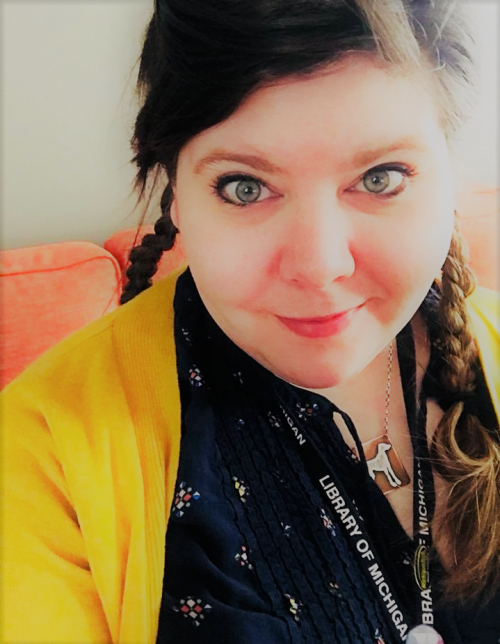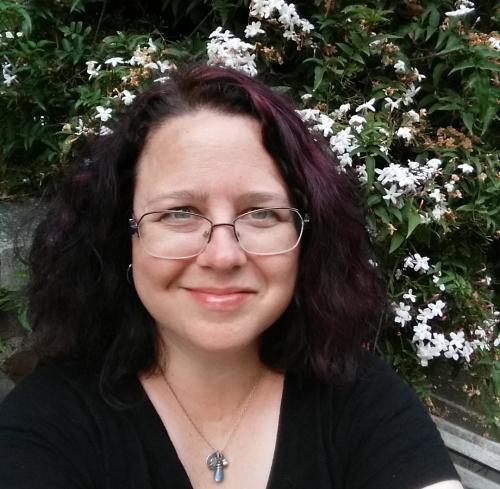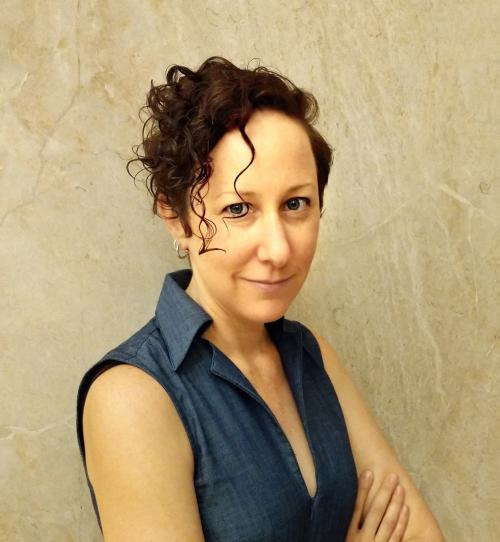- About Archives
- About SAA
- Careers
- Education
- Publications
- Advocacy
- Membership
We are honored to present the nominees for this year's election cycle. Thank you to the nominees for volunteering their time to serve the Oral History Section. Please review the candidate's statements to get to know them better.
Ballots will be managed by SAA staff through Survey Monkey; keep an eye on your inbox for when the ballot opens!
Vice Chair-Chair Elect

Lindsay Hiltunen
University Archivist, Michigan Technological University Archives and Copper Country Historical Collections
Lindsay Hiltunen, MLIS and MA, is the University Archivist at the Michigan Technological University Archives and Copper Country Historical Collections in Houghton, Michigan. Hiltunen, received her MLIS in Archives, Book Arts, and Special Collections from Catholic University of America in 2009 and her MA in United States History from Western Illinois University in 2014. In addition to serving as the head of the archives department within the Van Pelt and Opie Library at Michigan Tech, she is also a PhD student in the Rhetoric, Theory and Culture program at the university. Her master’s thesis and the groundwork for her dissertation address intersections of archives and rhetoric, especially the role of archives in memorialization, rhetorical production in history, and contested public memory, especially in instances of social movements and conflict.
Hiltunen is active in the archives and public history fields and believes in being generous with her time to offer service to the profession. Current board memberships include the Michigan Archival Association (MAA), Michigan Oral History Association (chair of the education committee), Society of International Hockey Research Oral History Committee, and Quincy Mine Hoist Association (chair of interpretive committee), a partner site of the Keweenaw National Historical Park. Hiltunen is the co-editor of Open Entry, the newsletter of MAA. Other recent service includes serving as a member of the program committee for the Midwest Archives Conference Annual Meeting in Detroit 2019 and was formerly on the roster the Legislative Research Team, a subgroup of the Issues & Advocacy section of the Society of American Archivists (SAA), in 2018.
Steering Committee Memembers (2 positions)

Terri M. Jordan
Digitization Specialist, Sargeant Memorial Collection, Norfolk Public Library
I began working in archives during graduate school at Indiana University, where I obtained an M.A. in Folklore and an M.L.S. My Folklore thesis project involved work with the Otoe Missouria tribe of Oklahoma, interviewing descendants of Native American World War I veterans represented in the photograph collections of Indiana University’s Mathers Museum. I have over fourteen years of experience with archives and special collections at a broad spectrum of institutions—including many oral history collections. My oral history and audio work has included collection management for the Department of Native American Languages at the Sam Noble Museum (University of Oklahoma), where I managed digitized and born digital recordings of Native American languages, and the Oklahoma Library for the Blind and Physically Handicapped, where I recorded narrators in the audio book studio and learned much about collection accessibility. I have also done archival consulting work with private art collections in Oklahoma City, during which time I helped design and conduct interviews for an oral history project focused on local artists in the Oklahoma City metropolitan area.
Along the way I obtained a Digital Archives Specialist Certificate through the Society of American Archivists in July 2016. Additionally, I am heavily involved in the American Folklore Society and have been the convener for the society’s Archives & Libraries Section since 2012, leading and advising numerous colleagues in the management of oral histories and other archival folklore collections. In summer 2018, after 11 years in Oklahoma, my husband took a new job and we moved to Norfolk, Virginia. I am now working at the Sargeant Memorial Collection, the Norfolk Public Library system’s local history and genealogy archive. (I hope to talk them into starting a local oral history collection in the not too distant future.) With a background as both a professional archivist and a trained folklorist, I am very interested in serving on the SAA Oral History Steering Committee and participating in professional exploration of the issues surrounding oral history archives. In doing so, I also hope to strengthen connections between SAA and the American Folklore Society.

Kelly Revak
Archivist, American Folklife Center, Library of Congress
Kelly Revak is an archivist at the American Folklife Center (AFC) at the Library of Congress where she leads efforts to extract, map and transform data for various cataloging and access initiatives. She has a MA in Folklore and a BA in Anthropology from the University of California, Berkeley. Cumulatively, she has over 20 years of experience in archives, often as a ‘lone arranger,’ which led her to develop a broad range of skills and a strong focus on efficiency. Her ongoing projects at AFC include increasing tribal access to AFC's Native American recordings, transforming legacy data for collection finding aids, processing and cataloging materials, updating the Ethnographic Thesaurus, and a role as Accessions Archivist.
My perspective on oral histories stems from my background in folkloristics and anthropology. I find them to be a wonderful way to capture a particular perspective, especially to give voice to those who often go unheard, and in their own words. They do present an interesting puzzle archivally in terms of description and access. With the potential for wide ranging topics within a single oral history, these rich resources often go undiscovered due to access issues and the significant amount of time necessary to make them discoverable. At AFC, I've worked on developing efficient and effective workflows for processing, cataloging, and online access to the Civil Rights History Project and the ongoing Occupational Folklife Project, both large-scale oral history efforts. My work on the Ethnographic Thesaurus (ET) is driven in part by descriptive access needs for ethnographic interviews and oral histories including working directly with 'power users' like StoryCorps. The ET has recently been integrated into the Oral History Metadata Synchronizer (OHMS), which we hope will also be a fruitful collaboration to surface necessary updates to the thesaurus.